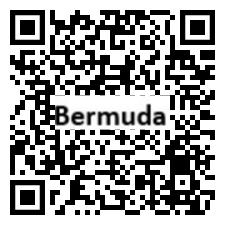Introduction
Background
Bermuda was first settled in 1609 by shipwrecked English colonists heading for Virginia. Self-governing since 1620, Bermuda is the oldest and most populous of the British overseas territories. Tourism continues to be important to the island's economy, although international business has overtaken it in recent years.
Geography
Area
total: 54 sq km
land: 54 sq km
water: 0 sq km
Climate
subtropical; mild, humid; gales, strong winds common in winter
Natural resources
limestone, pleasant climate fostering tourism
People and Society
Population
72,576 (2023 est.)
Ethnic groups
African descent 52%, White 31%, mixed 9%, Asian 4%, other 4% (2010 est.)
Languages
English (official), Portuguese
Religions
Protestant 46.2% (includes Anglican 15.8%, African Methodist Episcopal 8.6%, Seventh Day Adventist 6.7, Pentecostal 3.5%, Methodist 2.7%, Presbyterian 2.0%, Church of God 1.6%, Baptist 1.2%, Salvation Army 1.1%, Brethren 1.0%, other Protestant 2.0%), Roman Catholic 14.5%, Jehovah's Witness 1.3%, other Christian 9.1%, Muslim 1%, other 3.9%, none 17.8%, unspecified 6.2% (2010 est.)
Population growth rate
0.32% (2023 est.)
Government
Government type
Overseas Territory of the UK with limited self-government; parliamentary democracy
Capital
name: Hamilton
Executive branch
chief of state: King CHARLES III (since 8 September 2022); represented by Governor Rena LALGIE (since 14 December 2020)
head of government: Premier David BURT (since 19 July 2017)
Legislative branch
description: bicameral Parliament consists of:
Senate (11 seats; 3 members appointed by the governor, 5 by the premier, and 3 by the opposition party; members serve 5-year terms)
House of Assembly (36 seats; members directly elected in single-seat constituencies by simple majority vote to serve up to 5-year terms)
Economy
Economic overview
small, tourism- and construction-based, territorial-island economy; American import and tourist destination; known offshore banking hub; increasing inflation; major re-exportation and re-importation area
Real GDP (purchasing power parity)
$5.127 billion (2021 est.)
$4.863 billion (2020 est.)
$5.22 billion (2019 est.)
Real GDP per capita
$80,300 (2021 est.)
$76,100 (2020 est.)
$81,700 (2019 est.)
Agricultural products
bananas, vegetables, citrus, flowers; dairy products, honey
Industries
international business, tourism, light manufacturing
Remittances
22.86% of GDP (2020 est.)
20.84% of GDP (2019 est.)
20.02% of GDP (2018 est.)
Exports
$1.123 billion (2021 est.)
$1.027 billion (2020 est.)
$1.605 billion (2019 est.)
Exports - partners
Jamaica 49.1%, Luxembourg 36.1%, US 4.9% (2017)
Exports - commodities
recreational boats, ships, trailers, aircraft, fertilizers (2021)
Imports
$1.925 billion (2021 est.)
$1.723 billion (2020 est.)
$2.224 billion (2019 est.)
Imports - partners
United States 44%, South Korea 17%, Germany 10%, Canada 8% (2019)
Imports - commodities
ships, refined petroleum, postage stamps, recreational boats, aircraft (2019)
Exchange rates
Bermudian dollars (BMD) per US dollar -
Exchange rates:
1 (2021 est.)
1 (2020 est.)
1 (2019 est.)
1 (2018 est.)
1 (2017 est.)
Page last updated: Wednesday, December 06, 2023
